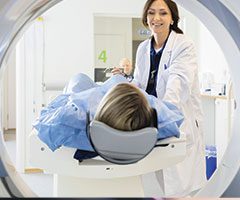Bladder Cancer
What is bladder cancer?
This cancer starts in the intricate liner of the bladder and gradually works its way outward where it spreads to other parts of the body. About 9 in 10 people diagnosed with bladder cancer are age 55 or older, and the average age at the time of diagnosis is 73. With about 71,000 new cases each year and a five-year survival rate of about 75 percent, bladder cancer is twice as likely in Caucasians and people who smoke.
What are the signs and symptoms of bladder cancer?
Bladder cancer symptoms in males can first be noticed with blood in your urine. And the same similar symptoms of bladder cancer in females. Other symptoms of bladder cancer can include:
- Painful urination
- Urinary tract infections
- Frequent urination
- Weak urination stream
- Burning sensation when peeing
- Feeling unwell after using the bathroom
For men having urinary symptoms, your doctor will want to analyze your urine to determine the causes of the symptoms. If bladder cancer can be detected early, then the chances for treatability increases.
Bladder Cancer Support Group in Fort Myers
Looking for a bladder cancer support group near me? Our bladder support groups are offered in person at the Regional Caner Center or online.
-
Cancer Support Groups
Cancer support groups are gatherings that provide a secure environment for those impacted by the disease to talk about their feelings and experiences with other cancer patients.
Types of Bladder Cancer
If the doctors discover cancerous cells through diagnosis the next step is understanding which type of bladder cancer is present. Bladder cancer types are:
- Urothelial carcinoma, also known as Transitional Cell Carcinoma (TCC) - cancer that begins in cells that normally make up the inner lining of the bladder.
- Squamous Cell Carcinoma - cancer that begins in thin, flat cells and develops in the bladder lining due to chronic irritation or inflammation.
- Adenocarcinoma - cancer that begins in the cells that make and release mucus and other fluids.
- Sarcoma - rare cancer type that develops in the muscle cells of the bladder.
- Small Cell Carcinoma - an aggressive type of cancer that forms in the neuroendocrine cells of the bladder.
The different types of bladder cancers can grow in various patterns. It is important to remember you are not alone when it comes to a cancer diagnosis. The Lee Health Cancer Institute is always here to help coordinate care if you live out of state, visiting, or reside in Southwest Florida.
-
-
Richard M. Schulze Family Foundation Cancer Clinic - Bonita Health Center
3501 Health Center Blvd Estero, FL 34135
What is Lee Health's approach to diagnosing bladder cancer?
Doctors will use a series of tests to determine if cancer is present. They can use urinalysis, cystoscopy, and other imaging tests to discover the disease. An MRI or CT scan can be performed at one of our Lee Health outpatient imaging locations. An imaging test can help show the findings or possible signs of bladder cancer early.
-
Computed Tomography (CT Scan)
CT scans use a computer to combine multiple x-rays to create a 3-D image of soft tissue, bones, organs and blood vessels.
-
Magnetic Resonance Imaging (MRI)
MRI is a painless imaging procedure used to help your physician diagnose a wide variety of conditions. In many cases, it provides different information about structures within the body that can’t be viewed through other imaging procedures.

















